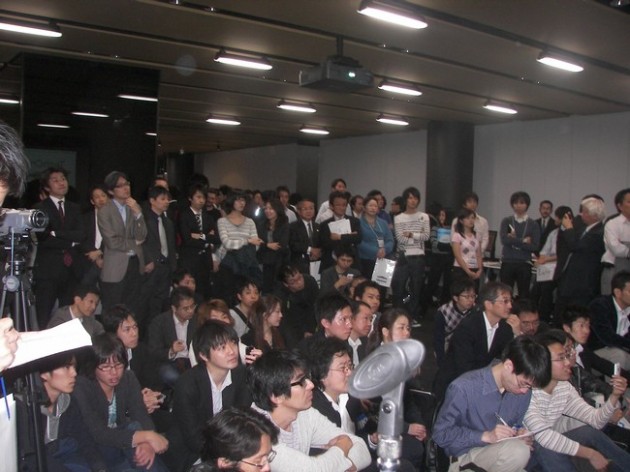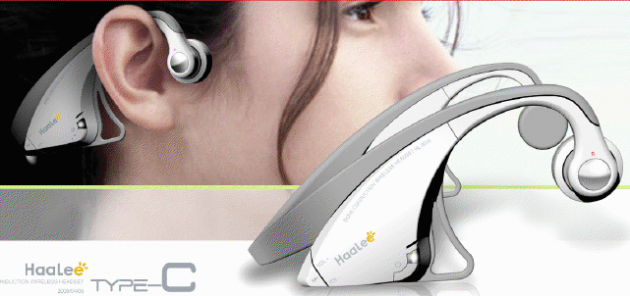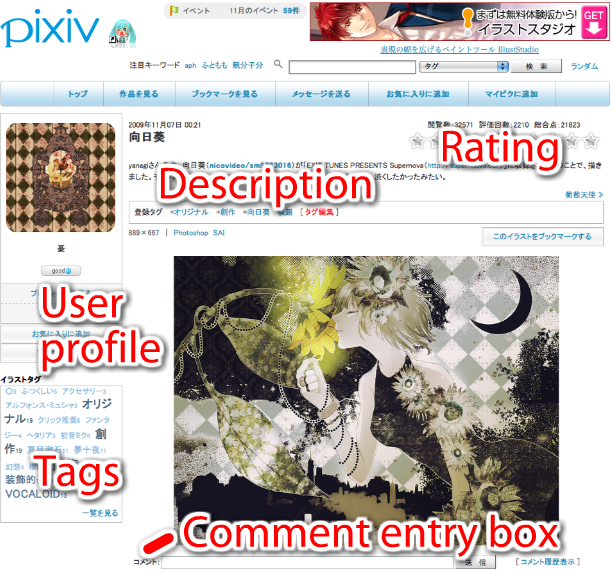
 The TechCrunch Japan TokyoCamp 2009, a demo event for web startups that took place this Friday, was a total blast. No less than 350 people came to the demo pit and meetup, which were co-organized by DESIGN IT!, LLC (a Sociomedia group company that runs TechCrunch Japan) and Nikkei Digital Core (a community under the umbrella of the Nikkei, Japan’s biggest business publication).
The TechCrunch Japan TokyoCamp 2009, a demo event for web startups that took place this Friday, was a total blast. No less than 350 people came to the demo pit and meetup, which were co-organized by DESIGN IT!, LLC (a Sociomedia group company that runs TechCrunch Japan) and Nikkei Digital Core (a community under the umbrella of the Nikkei, Japan’s biggest business publication).
This time, TokyoCamp gave a total of 29 startups from three Asian countries (Japan, Singapore and Korea) the chance to present their services to Japan’s leading journalists, fellow entrepreneurs, top-level VCs and TechCrunch readers. Here are thumbnail sketches (of varying depth) of all companies that were present at the event. (Here is my report on the first TokyoCamp that took place in August this year.)
Demos from TechCrunch50 alumni from Singapore, Korea and Japan
 iTwin
iTwin
Singapore-based iTwin was one of the two non-Japanese startups demoing at TokyoCamp (it’s a spin-off from A*STAR, a Singapore government-funded research agency). Their two-part USB drive iTwin, showed to the world at TechCrunch50 in September, is intended to be a “cable-less cable”. After connecting the iTwin to a computer, you can give one part of it to someone else who’ll have remote access (over the web) to the computer via his own computer.
iTwin’s Kal Takru told me his company is currently plans to release the device in five to six months, with the price likely to be $99 including worldwide shipping. Initially, the iTwin will be available online only – even though following TechCrunch50, the company was bombarded with inquiries from retail chains all over the world.
 Sealtale
Sealtale
Social widget service Sealtale was Tokyocamp’s guest from South Korea and another TechCrunch50 finalist. Sealtale users can express their interests, preferences or causes via so-called seals (interactive widgets). Once these seals are integrated into your blog or social network page, you can communicate with other people who have the same interests as you within the seal itself (via RSS feeds, comments, posts, audio and video files). Sealtale works across various blog platforms and social networks.
The three members of the six-man company (all of whom are college students) who were invited to Tokyo told me they now feel there’s life before TechCrunch50 and after. Following TC50, Sealtale in South Korea apparently got a boost in terms of user base, massive media attention (the service was even featured on national TV) and increased interest from brands and companies. Just one example: Sealtale was chosen as a partner for a media campaign in Korea’s political space and distributed more than 120,000 seals to users all over the country in the process. Sealtale’s major global roll-out is planned for the middle of next year.
![]() Spysee
Spysee
Tokyo-based people search engine Spysee launched its English version during TechCrunch50 in September (the service was in the TC50 demopit). You can use it to look for any person on the web, with Spysee scraping various information on that person off the web (bio, news, blog posts, videos, related individuals etc.) and displaying it on a single page (example: Barack Obama’s Spysee entry).
 LIFEmee
LIFEmee
LIFEmee is a life management service that allows you to store and share the significant aspects and events of your life online (from “the cradle to the crave”). You can keep a diary, list up significant events in your life (career history, places you lived in, hobbies etc.), share your future plans, manage assets, store your last will or compare certain elements of your life with other LIFEmee users.
The service launched at TechCrunch50 (LIFEmee presented at the demo pit) in English. The LIFEmee team has since been working on localizing the service into Japanese and collecting early user feedback for the English version to optimize features and functions.
Demos from Japanese startups
![]() Joker Racer
Joker Racer
Joker Racer, a service that just recently won the Grand Prix at another big demo event in Tokyo, lets users from all over the world control Wi-Fi- and GPS-enabled models cars through the browser or iPhone (in real-time). The cars are customized and offered by JokerWorks, the new company behind the service, itself. A bunch of videos can be found here.
But at TokyoCamp, CEO Yoski Akamatsu presented the “Joker Racer R/C Server” for the first time, the world’s first linux server exclusively designed for R/C model cars to be controlled over the web (specs and more pics here). This means you can buy the mini server, connect it with your own R/C car, and then control the car using its standard servo/speed controllers and a mounted standard web camera.
For end users, the server’s final price and release date are yet to be determined. But JokerWorks already accepts inquiries from event organizers and advertising and promotion agencies.

Lang-8
Youyou Ki, CEO of Lang-8, showed a revamped version of his award-winning language learning site whose interface is available in 14 languages. The main idea is to let users write in the language they’re learning and have native speakers of that language correct the text (this video shows how this works). Lang-8 users can get in touch with each other directly through the site, too. The service is free.
![]()
Cerevo Cam
I’ve written an extensive article on the Cerevo Cam, a digital camera that automatically uploads pictures to various social media sites via Wi-Fi or 3G, in late August. Now, roughly nine weeks later, the device is finally priced (just under 20,000 Yen/$220) and dated. The Cerevo Cam and Cerevo Life, a photo management site specifically designed for buyers of the camera, will be available at the beginning of next month. CEO Takuma Iwasa is still determined to sell the camera outside Japan but couldn’t give me details.
At TokyoCamp, I tried out a fully working prototype, which instantly uploaded pictures to a nearby panel computer via a 3G modem stick plugged into the camera.
HaaLee
HaaLee isn’t a web startup, but the company, whose team is based out of China, Japan and the US, showed a pretty cool blue-tooth stereo headset that does not plug-up the ears. Instead, users are supposed to place the speakers against the skin just in front of the ears. The idea is to be able to listen to music on your cell phone or portable media player while still being able to hear sounds around you. HaaLee is currently in discussions with various brand companies and carriers to take the headset to market.
 Jingoo
Jingoo
Tokyo-based MetaCast presented Jingoo at Tokyo Camp, a Japanese-only add-on for Firefox or the Internet Explorer. Once installed, Jingoo occupies a column on the right of your browser window (“Jingoo Zone”) that allows you to access customized apps that are supposed to make your life on the web easier. These apps (there are 17 at this point) can be anything from games you can directly play in the “Jingoo Zone”, a clock, maps, shopping tools, a tweet stream etc. Jingoo is free.
 Pixiv
Pixiv
Launched in September 2007, the Japanese-only “social illustration” service Pixiv broke the one million member mark in June this year (it’s currently ranked at 60 in Alexa Japan). Users (talented amateur artists, pros and art enthusiasts) spend more than 13 minutes on the site per visit, submitting 15,000 drawings per day on average and discussing them in a social network that’s built around the drawings.
Here’s how a typical drawing, submitted by a Pixiv member, looks (each piece gets a dedicated page):
The free site makes money mainly through display ads and premium memberships ($6 per month) but also organizes real life events. Learn more about Pixiv in the excellent English Wikipedia entry.
 Patent Bureau
Patent Bureau
Patent Bureau is a technology media company that aims at automating the process of delivering relevant technology and intellectual properties information in real-time. The company claims their interactive data base, dubbed astamuse (Japanese only), is being used by patent offices in Japan for trial decisions and court precedents for intellectual patent cases. astamuse wants to be the ultimate destination site for anybody involved in creating, using and managing technology and intellectual properties to explore their territory. Patent Bureau is currently working on covering additional languages.
 Rigureto
Rigureto
Rigureto is a free community and communication platform through which users can anonymously express and share their negative feelings (i.e. “I just lost my girl friend.”) with other users who can then post messages of comfort (i.e. “Don’t worry, you’ll soon find another one.”). This happens virtually in real-time, as it usually seems to be a matter of a few minutes or even seconds to get a reaction. Think an online, crowdsourced Dear Abby (even though some users post just in order to communicate with other human beings – and it usually works). Rigureto users receiving positive comments can thank other members by sending them “arigatou” points, which can later be redeemed on the site. The service is Japanese only at this point.
![]() UserHeat
UserHeat
UserHeat is an in-page web analytics tool that visualizes user behavior in three different ways (mouse movement tracking, clicking behavior and “gazed” area, an educated guess of which areas of a given page were viewed the most). Install the tool on your web site, wait for a certain period of time to analyze how visitors use it (1,000 to 1,500 page views are apparently the minimum) and let UserHeat display the result via “thermographic” images that are superimposed over your site (sample heat map for a Japanese site selling contact lenses). The service is available in English, Chinese and Japanese, and it’s free.
Notable mentions
Here are the 16 other services demo’d at the TokyoCamp event: fabric video (a video delivery system to be made available next year), MOT (an ASP business tool), Photiva (a digital signage solution), Tabereko (an iPhone app for gourmets), Wombit (a Wi-Fi-enabled touch panel computer currently being developed by Tokyo-based Omnibit), Ataritsuki CM (a solution that links TV commercials to the web), Speeda (a database that users can access to get structured economic data in an SaaS-like model), Orihime (an online shop set up by a college student who sells self-designed and made-in-Japan PC bags and cases), AdLantis (an online ad management system), Cognitive Function Balancer (a piece of interactive software for self-test and training for mild cognitive impairment), Phroni (a Firefox add-on that displays information on keywords you highlight on a web page), RainbowApps (a platform that allows you to list up your iPhone apps and discover which apps other iPhone owners have installed), Conit (an iPhone app developer), Istpika (a social gaming company developing for Facebook, iPhone and other platforms), Pankaku (one of Japan’s most successful iPhone app development companies) and Linkthink (an entertainment content provider).
Many thanks to all attendees, demo companies and Nikkei Digital Core for making TokyoCamp a success. Special thanks to TechCrunch50 finalists and Asian guests iTwin and Sealtale for the journey to Tokyo. Another TokyoCamp might follow very soon!


